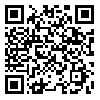Sat, Jan 31, 2026
[Archive]
Volume 35, Issue 1 (1-2021)
Med J Islam Repub Iran 2021 |
Back to browse issues page
Download citation:
BibTeX | RIS | EndNote | Medlars | ProCite | Reference Manager | RefWorks
Send citation to:



BibTeX | RIS | EndNote | Medlars | ProCite | Reference Manager | RefWorks
Send citation to:
Abolhallaje M, Ebrahimipour H, Jafari M, Pourtaleb A. Iranian medical university board of trustees’ challenges in practice: A qualitative study. Med J Islam Repub Iran 2021; 35 (1) :387-393
URL: http://mjiri.iums.ac.ir/article-1-5199-en.html
URL: http://mjiri.iums.ac.ir/article-1-5199-en.html
Health Managers Development Institute, Ministry of Health and Medical Education, & Department of Health Services Management, School of Health Management and Information Sciences, Iran University of Medical Sciences, Tehran, Iran , mjafari@iums.ac.ir
Abstract: (2252 Views)
Background: Board of Trustees (BOTs) in Iranian medical universities has been considered as one of the most important structural and managerial changes to create a revolution in decision-making and accountability. This study aimed to explore challenges facing BOTs in governing Medical Universities (MUs).
Methods: In this qualitative study, 27 semi-structured interviews were conducted with current and former members of BOTs, chancellors of universities, BOTs’ secretaries, and staff in the Ministry of Health and Medical Education in 2017. These participants were selected using a purposive and snowball sampling method. Data were analyzed by framework analysis and using Atlas-Ti software.
Results: Five key themes were identified, including 1) infrastructure (problems in BOT laws and membership requirement), 2) planning and decision-making (evidence-based decision making and planning and meeting), 3) organizing (ambiguity in positions and lack of necessary administrative structure), 4) performance evaluation (self-reporting, lack of time allocation, lack of evaluation criteria and lack of required structure for evaluation), 5) independence and influence on performance (dependency on the Ministry of Health and Medical Education and financial independence).
Conclusion: Due to obsolete laws, it seems that the structural and executive reform of BOTs is essential. The issues of university autonomy and empowerment of the boards’ members should particularly be considered in such reforms. However, it appears that more delegation and empowering the position of the boards could be effective strategies in governance medicals universities.
Methods: In this qualitative study, 27 semi-structured interviews were conducted with current and former members of BOTs, chancellors of universities, BOTs’ secretaries, and staff in the Ministry of Health and Medical Education in 2017. These participants were selected using a purposive and snowball sampling method. Data were analyzed by framework analysis and using Atlas-Ti software.
Results: Five key themes were identified, including 1) infrastructure (problems in BOT laws and membership requirement), 2) planning and decision-making (evidence-based decision making and planning and meeting), 3) organizing (ambiguity in positions and lack of necessary administrative structure), 4) performance evaluation (self-reporting, lack of time allocation, lack of evaluation criteria and lack of required structure for evaluation), 5) independence and influence on performance (dependency on the Ministry of Health and Medical Education and financial independence).
Conclusion: Due to obsolete laws, it seems that the structural and executive reform of BOTs is essential. The issues of university autonomy and empowerment of the boards’ members should particularly be considered in such reforms. However, it appears that more delegation and empowering the position of the boards could be effective strategies in governance medicals universities.
Type of Study: Original Research |
Subject:
Health Management and Economics
Send email to the article author
| Rights and permissions | |
 |
This work is licensed under a Creative Commons Attribution-NonCommercial 4.0 International License. |








